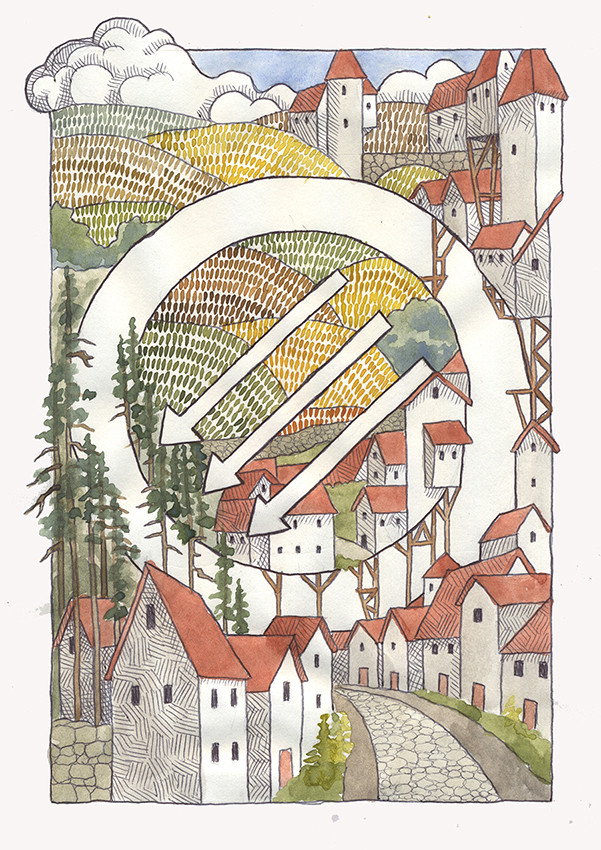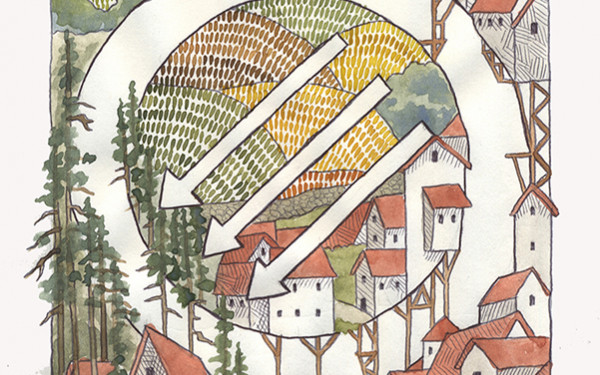Arm in Arm, Women March Against Trump
There’s a woman I’m friends with on Facebook, a mom of a friend.
Our paths never cross outside the internet. She’s married to a professor, she actively supports her two children in school, and she’s part of a Parent-Teacher Association in the local music program. I heard from her only twice through comments on Facebook.
After the election of Donald Trump in November, something changed. Out of nowhere, she sent me a link to a group on Facebook called Women’s March on Chicago. The page was created to promote a solidarity march occurring in Chicago, which would coincide with a demonstration in D.C. the day after the inauguration.
Once in a while, this woman would post on the group page. She asked how to add people to the page and if there were any updates on the march. She posted links to relevant articles. Her voice joined the chorus of more than a thousand women on this page alone.
I wouldn’t have associated this Illinois PTA suburban mom with social activism, but I was wrong to stereotype. And I’m encouraged by it.
The page was made to inform about the upcoming event, but became a place where members could discuss the issues that spawned the march. People use the page to promote other related events, like a Safety Prep workshop for demonstrators to learn their rights and other direct action tools.
All members of the group are supported and encouraged. All are unified in one cause.
The Women’s March is setting up to be a historic gathering in Washington. According to the Washington Post, more than 100,000 people have registered with the official event website to be at the march, and groups like Planned Parenthood have signed on as partners.
Event administrators have facilitated transportation by helping organize buses by city for those travelling together to Washington. Council member Charles Allen has stated that 1,200 applications have been submitted to park at the Robert F. Kennedy Memorial Stadium near where the protest starts.
The march is a place for voices from communities that have felt frustration with the Trump election—notably the Muslim, the LGBTQ+, the Black, and the Hispanic communities. Men are invited to support the event however they can, but the core of this march is women’s rights.
The meaning of this event is deeper than just a march against Donald Trump. It’s a reason to unite in response to a government and idea that makes people feel like they have no control—and this message is resonating with people who have previously been defined by their political silence.
For those who cannot make it out to D.C. on Jan. 21, solidarity marches have been planned in cities internationally, including one in Montreal.
I’m planning to go the Women’s March in Montreal, held at the same time as the larger demonstration in D.C.
My family lives in the States. Communities to which I don’t belong have without a doubt felt more of a threat from Trump’s rhetoric and his administration’s actions than I or my family has. But on a smaller, personal level, I think about my little sister and my mom when I think about why I will march and whom I will want to represent.
It doesn’t take a psychologist to know that if you validate (read: elect) a movement that has been extremely offensive and sometimes violent (like during some of Trump’s campaign rallies), it becomes normalized in society.
The night of the election, I felt crushed, like no matter what I did as a woman, it didn’t matter. As I imagine other women did, I identified with Hillary Clinton. Opinions aside, she had a lifetime of experience lost to a reality-show star.
My mom works as an office administrator, in a business world that is largely male dominated, as she has the majority of her professional career. I’m projecting, but I need her to know how much all that work, experience and talent are truly worth. As a powerful woman, I think it would make her happy to see another woman as her president.
My little sister is a fireball, an intelligent woman who is gearing up for university—she’s considering studying environmental engineering. On top of hearing about violent assaults on campuses like Stanford and rising, crippling tuition rates, it doesn’t calm my fears when I realize she will be going through university under the presidential leadership of an accused rapist who thinks climate change is a hoax. I need her to feel safe. I need her to feel empowered.
This is why I will march. I can’t do much, especially living in Canada, but I can do this.
Public figures have said that America’s best days are ahead. It’s might not be obvious, but I agree. American democracy is transforming, and already people who aren’t usually demonstrating in the streets are buying bus tickets to D.C. to unify, to put their bodies on the line against a future they refuse to accept.
The cause is ugly, but the result is hundreds of thousands of people sticking up for what they believe in. I’m so excited to see what happens Jan. 21, and if this sparks an era of people loudly demanding a better future for themselves and each other. I can be here in Montreal with my body, with confidence that people are listening. If the powerful choose not to listen, then they can expect more disruption and stronger organization in the future.
The world will be watching, tuning in to the swearing in of the forty-fifth president. Instead of remembering the inauguration of a demagogue, let them remember overwhelming waves of people linked arm in arm.





3_600_375_90_s_c1.jpg)
